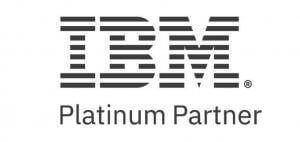How IBM watsonx AI Code Assistant Can Aid Embedded System Developers
Embedded systems development demands efficiency, safety, and strict adherence to resource constraints. IBM watsonx Code Assistant, powered by the generative AI capabilities of IBM watsonx, provides tools to simplify and optimize workflows for embedded systems developers. By potentially addressing the challenges unique to this domain, watsonx Code Assistant enables faster coding, debugging, and offers the opportunity to improve compliance with industry standards, making it a potentially valuable tool for embedded programming.
IBM watsonx Code Assistant offers two primary delivery mechanisms: cloud-based and on-premise (hybrid) deployments. The cloud version allows developers to leverage generative AI and automation capabilities for rapid code generation and modernization directly through the cloud. This setup facilitates seamless scalability, ensuring that enterprises can quickly adopt AI-powered tools without disrupting existing infrastructure. On the other hand, the on-premise deployment option enables organizations to integrate Watsonx Code Assistant with their current IT infrastructure, ensuring that sensitive data can be kept within their own data centers. This option is ideal for enterprises that have specific data governance and regulatory compliance needs.
But will my company’s code and intellectual property be safe?
IBM watsonx Code Assistant offers a secure and enterprise-ready approach for generative AI solutions, making it an ideal choice for companies concerned about data privacy, copyright protection, and operational flexibility. Unlike many competing tools, IBM ensures that client data and intellectual property are not used to train or refine the underlying AI models, safeguarding sensitive business information. This is achieved through robust filtering mechanisms that prevent the inclusion of proprietary code or data in model updates. Additionally, IBM watsonx Code Assistant supports on-premises deployments, providing clients with full control over data and infrastructure to organizations with security and compliance requirements. These features, coupled with IBM’s expertise in enterprise AI and governance, allow businesses to adopt generative AI confidently without exposing their assets to unnecessary risks.
Capabilities of IBM Code Assistant for Embedded Development
Support for Embedded Languages:
- C and C++: IBM Code Assistant focuses on the foundational languages of embedded systems, offering tailored suggestions for device drivers, hardware interfaces, and low-level programming tasks.
- Rust (Planned): With growing adoption in safety-critical applications, Rust’s memory safety features make it a perfect candidate for IBM’s roadmap. Rust integration would address needs in automotive systems, IoT devices, and more.
- Future Expansion: IBM is exploring additional capabilities for languages like Python and Go, which are widely used for prototyping and IoT backend development.
Potential for Safety and Standards Compliance:
- From what I have read you can train IBM Code Assistant models with proprietary or industry-specific compliance rules to ensure the generated code adheres to required safety and quality guidelines.
Potential For Optimized for Embedded Constraints:
- Looks like users can create domain-specific and curated models which could offers intelligent recommendations for memory and processor efficiency, and suggest low-level optimizations specific to microcontrollers and embedded hardware.
Opportunity For Integration with Embedded Workflows:
- User created models could assist with cross-compilation by identifying and resolving architecture-specific issues, helping developers target diverse hardware platforms like ARM and RISC-V. The potential exists for integration with development environments to provide inline suggestions and facilitate real-time debugging.
How IBM Code Assistant Can Aid Developer Productivity
Code Generation and Refactoring:
- Automates repetitive coding tasks, such as setting up initialization routines or writing interrupt service handlers.
- Modernizes legacy codebases, adapting them to current best practices without compromising performance.
Bug Detection and Fixing:
- Identifies common embedded programming errors, such as buffer overflows and race conditions.
- Suggests fixes based on best practices, reducing debugging time.
Prototype to Production:
- Speeds up prototyping by automating code generation, enabling developers to transition seamlessly to production-grade development.
- Supports Python and Go for rapid development of proof-of-concepts in IoT and edge computing.
Enhancements IBM Code Assistant Offers for Embedded Systems
Primary Language Support:
- C and C++: Core languages for embedded systems.
- Rust: A planned addition, it’s increasingly adopted for safety-critical and resource-constrained applications.
- Python and Go: Python, commonly used in rapid prototyping for embedded systems, could see future IBM Code Assistant enhancements. Go’s concurrency model positions it for scalable embedded applications, though its adoption is niche in real-time systems.
Optimization Potential:
- Ensures code efficiency and reliability, particularly for resource-constrained environments.
- User created models could offer specific guidance for Real-Time Operating Systems (RTOS), improving determinism and performance.
IBM’s Stated Plans to the Future of Embedded Systems Development
The information below is what I have been able to glean from IBM’s public statements on the future plans for IBM Code Assistant.
Rust Integration:
- As a modern language emphasizing safety and concurrency, Rust is rapidly becoming the go-to for embedded systems. IBM Code Assistant’s planned support for Rust will provide safer alternatives to C/C++ without sacrificing performance.
Expanded Language Ecosystem:
- IBM recognizes the rising role of Python in embedded prototyping and is poised to extend AI-driven suggestions for frameworks like MicroPython and CircuitPython.
- Future support for Go will cater to developers of cloud-connected IoT devices, where efficient concurrency is critical.
Enhanced AI Capabilities:
- AI-assisted automated testing for embedded systems is on IBM’s roadmap, enabling developers to identify edge cases and generate test scenarios for robust designs.
- Broader hardware compatibility will support more diverse architectures, ensuring relevance for new applications.
Why Consider Evaluating IBM Code Assistant for Embedded Systems?
IBM Code Assistant provides embedded developers with a platform to create unique capabilities such as:
- Potential for deep understanding of embedded-specific challenges like memory constraints and real-time processing.
- User creation of models to support alignment with safety and compliance standards for critical industries.
- Forward-looking language support to stay competitive in evolving technology landscapes.
These capabilities make IBM watsonx Code Assistant an interesting option for embedded development projects. Developers can achieve faster time-to-market, higher code quality, and better alignment with industry requirements, empowering them to focus on innovation.
Out of the box IBM watsonx Code Assistant is far from perfect for embedded development today, but it has the great potential to be something special with user developed models.
For more details about IBM Code Assistant, visit IBM’s official page.
321Gang specializes in helping organizations maximize the value of their IBM tools, including IBM Code Assistant. With expertise in IBM solutions, we can guide teams through setting up trials, exploring features tailored to embedded systems development, and integrating Code Assistant into their workflows. Our team ensures you fully understand the capabilities and potential of the tool, helping accelerate your development processes and improve efficiency. Whether you’re evaluating or scaling your use of IBM Code Assistant, 321Gang provides the expertise to support your success.


321Gang | 14362 North FLW | Suite 1000 | Scottsdale, AZ 85260 | 877.820.0888 info@321gang.com
